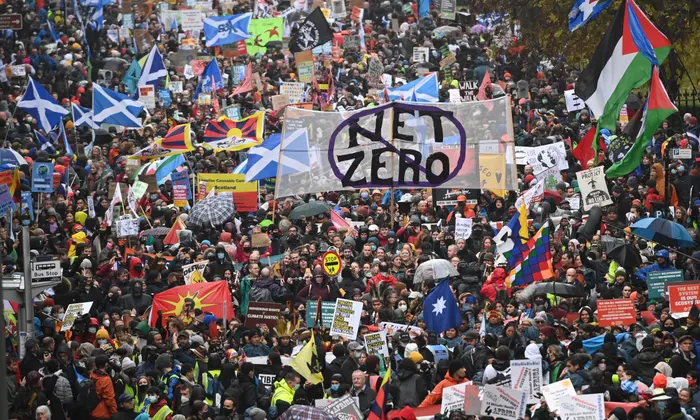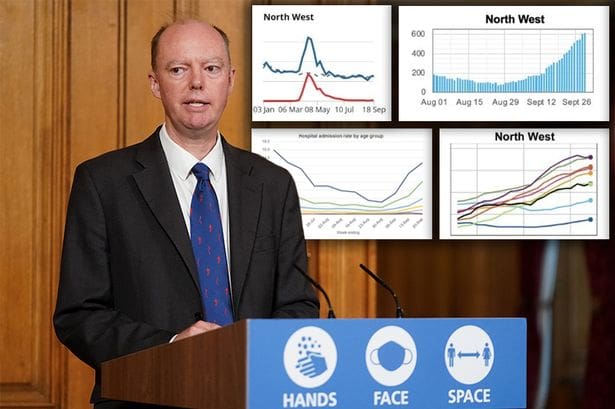

The Politics of Zero
The rise of the word ‘zero’ in our politics is significant. The number ‘zero’ signifies extirpation, destruction, annihilation. It is the number of absolute negation. But in politics, since no one wants to absolutely negate themselves, we can say that the purpose of ‘zero’ is to eliminate the other: not only to defeat one’s enemies but dance on their graves. As such it is what I call a ‘bad one’. Any politics of zero is in fact a politics of ‘bad one’.
Numbers are interesting. Nowadays we tend to look at them dispassionately, as if they are neutral, and equal in value. This has been a long consequence of the quantification of existence. The quantification of existence was not fully established in the West until around five hundred years, as before then there was no number for zero. (Ask yourself what the Roman numeral for zero is.) In the end, the Medieval West was forced to adopt the Arabian ‘cypher’, which was itself derived from an Indian novelty. At first this was a mere place holder in calculations. But eventually it became a number.
When 0 became a number, there was a shattering revolution. This was the invention of a distinction between ordinal and cardinal numbers: that is, a distinction between 1st, 2nd, 3rd and 1, 2, 3. For thousands of years 1 was first, 2 second and so on. But with the invention of 0, 0 was first, 1 second, 2 third and so on. In truth, of course, one could begin counting anywhere. But this remarkable number zero soon led to modern mathematics, logarithms, calculus and so on: in the last five hundred years we have seen the spilling out of negative numbers, complex numbers, irrational numbers, infinitesimals, quaternions.
This revolution made numbers boring: markers for mere quantities. Before the revolution numbers were interesting. They were not viewed dispassionately. They were not neutral, place-holding symbols. They were supposed to reveal truths about the universe. One is one and all alone and ever more shall be so. Two’s company, and three’s a crowd. (Change the numbers and these claims make no sense.) The Pythagoreans built an entire religious cult around the most important numbers, 1, 2, 3, and 4, marvelled at the way an octave was produced on a string by dividing it by two, and wrote poems to the Holy Tetraktys. Numbers revealed the music of spheres. This sort of assumption is still evident in tarot and zodiac. And I think most of us still depend on these numbers without knowing it.
Everyone disagreed about how many important numbers there are, but I would say the Pythagorean four takes us to the limit of what we can meaningfully think, when we are thinking quantitatively. One is unity. Two is division. Three is reconciliation. And four is necessary, as it is the number of ordering diverse entities when one is unable to reconcile them. So, as everyone knows, we have the great singular Gods of religion (1), we have the Yin and Yang or the Manichaean principles of Good and Evil (2), we have the Christian Trinity of Father, Son, Holy Spirit (3), and we have four seasons, four rivers, four gospels, four horsemen of the apocalypse, four empires, four winds, four points of the compass, four humours, etc (4). Go beyond four, and things simply fall apart.
Zero blew a great gaping hole through all this. So we have been, for at least half a millennium, in the age of zero.
This probably had an effect on politics. If ‘one’, whether ‘good’ or ‘bad’, is monarchical (one god, one law, one king, etc.), then ‘zero’ is something else – utopian or anarchical, say, possibly republican. This would explain a lot. But zero has blown into politics explicitly in the last few years. By ‘explicitly’ I mean that for the first time we hear a lot of political propositions put forward in terms of the number ‘zero’.
Here are some examples:
• “Forget about Net Zero, we need Real Zero,” Greta Thunberg, January 2020.
• “The UK needs a Zero-Covid strategy to prevent endless lockdowns,” Devi Sridhar, January 2021.
• “We need to pledge collectively to achieve carbon neutrality – Net Zero – by the middle of the century,” Boris Johnson, September 2021.
• “TalkTV registered zero viewers during primetime broadcasts,” Guardian, May 2022.
• “Zero Tolerance For Hate Speech, Nike And Adidas Step Up,” Forbes, November 2022.
• “Net Zero will be solved by innovation,” Rishi Sunak, January 2023.
This sort of language is bad. I began by saying that ‘zero’ is a ‘bad one’. What I mean by this is that the old one, or 1, the one of philosophical unity or religious harmony, was an ideal and wholly inclusive one. It was a ‘good one’: meaning that everyone was saved or everyone was included. Bad ones have existed ever since the first tribe slaughtered the another tribe. The first zero politics took the form of slaughter. For thousands of years zero politics has taken the form of war, especially total war: the reasoning is ‘We are good’ and ‘They are evil’, therefore ‘They should be destroyed.’ Carthage should be destroyed. And the Saracens. And the Jews.
We deplore this warlike politics of ‘bad one’ or zero. Consider Ukraine, where Russia is condemned for playing a ‘bad one’ gambit on the great chessboard of the world. But our new-fashioned, technological, peaceful politics has engineered fine new forms of zero politics. Even Hitler anticipated it with eugenics. But in the last few years we have found beautiful zeros in Woke, Climate and Covid politics. Everywhere we hear: We shall eliminate the virus, we should reverse anthropogenic global warming, we believe in science, we refuse to tolerate hate.” All of these are examples of a zero politics.
The oddest thing of all about zero politics is that its exponents like to pretend they are not being ‘political’ at all. They want to appeal to simple, unarguable goods, which, whether scientific or moral, are not to be questioned. Questioning them is taken to be a sign of being political. But the whole thing is a trick. They have found that denying that they are political is a very effective, perhaps the most effective, way of being political. To see the trick: read the Guardian, watch the BBC: or even read the Times: anyone, for instance, who has gone back to masks in the last few days.
Zero politics appeals to politicians because they want to depend on our warlike propensities while also wanting to avoid the morally deplorable obvious ‘bad one’ of declaring some other people ‘evil’ and ourselves ‘good’ in the old aggrandising imperial way. They prefer our enemies to be viruses or conditions. But if our enemies have to be human, then it is better if they are not the old-fashioned enemies, but the new boutique post-modern enemies who are only our enemies because they refuse to be friends. These people refuse to be friends because they exhibit ‘hate’: where ‘hate’ is defined as anything redolent of the old discriminating politics of slavery, racism, empire and patriarchy. So if anyone expresses the wrong sort of opinion, and can be associated with the old discriminating politics in any respect, they can be subject to the worst sort of calumny, called ‘cancellation’. ‘Cancellation’ being a euphemism for the zeroing of someone.
I haven’t yet mentioned diversity. Diversity is a term often used in ‘zero’ politics, especially on the politically correct side. Diversity sounds good: it is diverse, surely it refers to plurality? Well, technically. But, in fact, ‘diversity’ is simply a totem to establish who is ‘against diversity’. The apparent infinity of ‘diversity’ resolves down into a ‘bad one’: it is concerned with eliminating all of those who are against diversity (and who are against anything perpetuated under the cover of the term ‘diversity’).
Anthropologists used to say that primitive man could only count to three: “1, 2, 3, many.” If this was true, then primitive man was way ahead of the advocates of ‘Zero Covid’, ‘Zero Carbon’ and ‘Zero Tolerance’, who can only count to one, and a bad one at that. It is not to the credit of Oxford and Cambridge that they have founded new entities called ‘Zero Institute’ and ‘Cambridge Zero’. Nowadays, academics only seem to be able to count to zero.
Politics, any good politics, depends on being able to count to at least two. “One, two”: and by this I mean a good two, not a bad two. A bad two is just a bad one all over again. “Here I am, there you are, now we fight to the death.” But a good two involves recognition of otherness: “Here I am, there you are, we are different, let us make something of this.” Two is the primitive number of legitimate opposition, of balanced government, of compromise, of give and take. It is the number of marriage. It is, as the economists say, not ‘zero sum’: because each side in a dispute comes away with something. In a ‘zero sum’ encounter, one side gets nothing. I am not saying ‘two’ is the most important number – 1, 2, 3 and 4 are all important – but it is worlds better than ‘zero’. Oxford and Cambridge are going to slowly have to remember how to count to two.
In sum, a zero politics is a zero sum politics.
I would suggest that word ‘zero’ be stripped from our political language. Stage one, perhaps, is that we insist it should be referred to as the ‘z-word’. I jest, but the point is serious. Nothing worthy is going to be achieved by using the word ‘zero’ in politics. It is a destructive, extirpative, hellish word.







